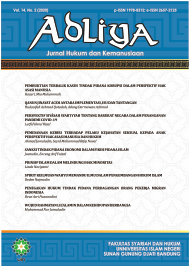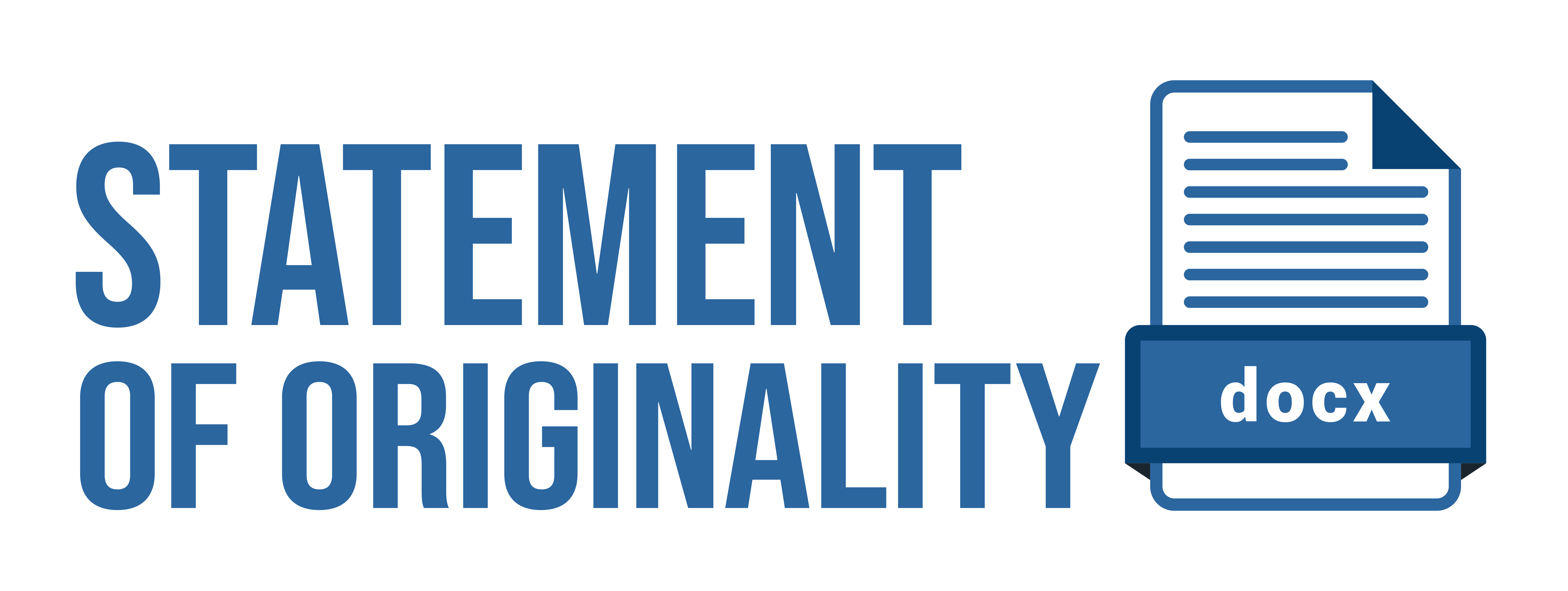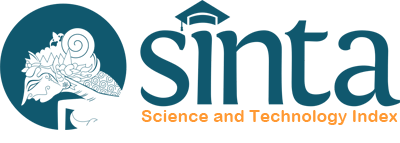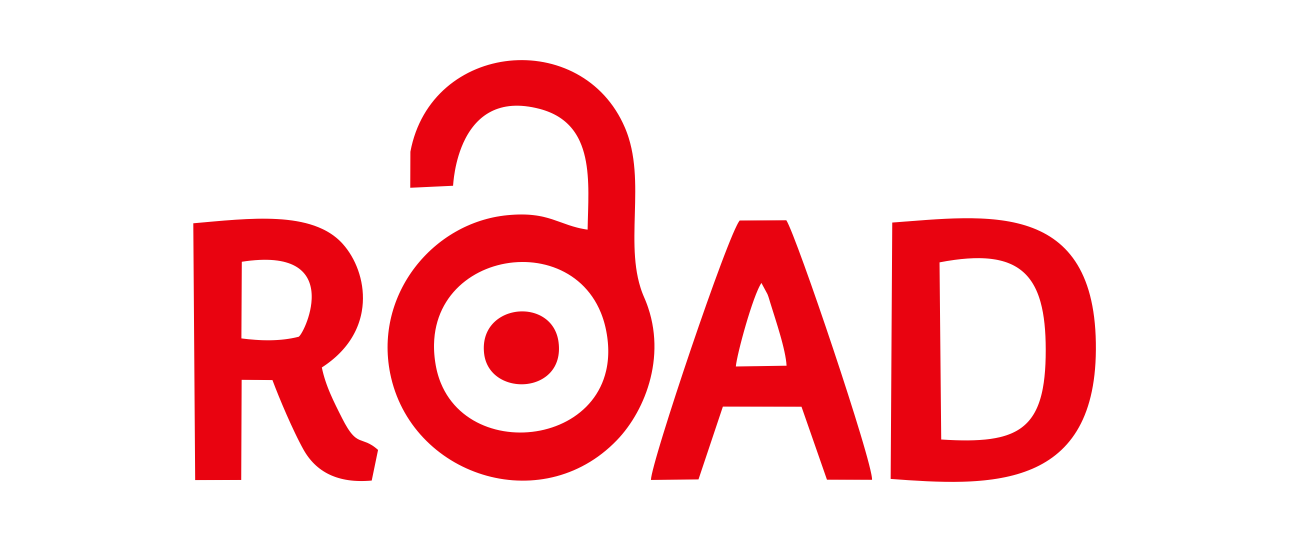An In-Depth Analysis of White-Collar Crimes in The Financial Sector of Dubai: Legal Frameworks and Collaborative Solutions
DOI:
https://doi.org/10.15575/adliya.v18i2.38729Keywords:
Dubai's financial sector, Legal loopholes, Regulatory gaps, White-collar crime, Adaptive legal reformsAbstract
This study aims to identify specific legal loopholes and regulatory deficiencies that contribute to white-collar crime, with the goal of advocating for adaptive legal reforms and a collaborative approach to strengthen legal frameworks. The specific focus is on the prevalence of white-collar crime in the financial sector of the emirate, given Dubai's rapidly growing economy. Therefore, this study addresses the potential exploitation of legal frameworks and regulatory gaps to offer a contextualised analysis of the contributing factors during the economic expansion of the emirate. A comprehensive literature review was applied to identify existing gaps in understanding, with a focus on the distinctive challenges faced by Dubai. The intention was to provide a thorough understanding of white-collar crime in the financial sector with an emphasis on the mechanisms through which legal loopholes and regulatory shortcomings could facilitate such offences. The identification of the vulnerabilities led to the provision of actionable insights for policymakers, regulatory authorities, and stakeholders to fortify legal infrastructure and prevent financial misconduct. The results deepened our understanding of the challenges associated with white-collar crime in Dubai. They provided practical insights for mitigating future risks by presenting a roadmap for policymakers to combat the growing nature of financial offences in the region. In conclusion, this study highlights the urgent need for adaptive legal reforms and enhanced regulatory measures to address the vulnerabilities within Dubai's financial sector.
References
Al-Kumaim, Nabil Hasan, and Sultan Khalifa Alshamsi. “Determinants of Cyberattack Prevention in UAE Financial Organizations: Assessing the Mediating Role of Cybersecurity Leadership.” Applied Sciences 13, no. 10 (May 9, 2023): 5839. https://doi.org/10.3390/app13105839.
Al-Tawil, Tareq Na’el. “Anti-Money Laundering Regulation of Cryptocurrency: UAE and Global Approaches.” Journal of Money Laundering Control 26, no. 6 (November 28, 2023): 1150–64. https://doi.org/10.1108/JMLC-07-2022-0109.
Ambe, Kingsley Ndonwi, and Nzalie Joseph Ebi. “Contemporary Crimes Prevalent within Africa’s Banking Industry and a Threat Analysis of Such Crimes on Africa’s Development.” SSRN Electronic Journal 4217275 (2022). https://doi.org/10.2139/ssrn.4217275.
Biju, Ajithakumari Vijayappan Nair, and Ann Susan Thomas. “Uncertainties and Ambivalence in the Crypto Market: An Urgent Need for a Regional Crypto Regulation.” SN Business & Economics 3, no. 8 (July 7, 2023): 136. https://doi.org/10.1007/s43546-023-00519-z.
Bryant, Carol. “The Rise of Financial Crimes in the Middle East: What Can Be Done?” International Journal of Financial Crimes 32, no. 2 (2023): 103–118.
CFA Institute Research Foundation. Middle East Capital Markets: Challenges and Opportunities. Edited by Bogdan Bilaus and Luis Garcia-Feijóo. CFA Institute Research Foundation, 2022. https://doi.org/10.56227/22.1.12.
Dufresne, Robert J. “Revisiting White-Collar Crime: Ethical Dilemmas and Legal Solutions.” Business Ethics Quarterly 33, no. 1 (2023): 45–61.
Galvin, Miranda A, Matthew Logan, and Daniel W Snook. “Assessing the Validity of White-Collar Crime Definitions Using Experimental Survey Data.” Journal of Experimental Criminology 18, no. 3 (September 2022): 665–93. https://doi.org/10.1007/s11292-020-09455-6.
Giannaros, Anastasios, Aristeidis Karras, Leonidas Theodorakopoulos, Christos Karras, Panagiotis Kranias, Nikolaos Schizas, Gerasimos Kalogeratos, and Dimitrios Tsolis. “Autonomous Vehicles: Sophisticated Attacks, Safety Issues, Challenges, Open Topics, Blockchain, and Future Directions.” Journal of Cybersecurity and Privacy 3, no. 3 (August 5, 2023): 493–543. https://doi.org/10.3390/jcp3030025.
Gottschalk, Petter. “Trusted Chief Executives in Convenient White-Collar Crime.” Crime & Delinquency, June 20, 2022, 001112872211047. https://doi.org/10.1177/00111287221104737.
———. White-Collar Crime and Fraud Investigation A Convenience Theory Approach. Springer International Publishing, 2020.
Hassan, Waleed. “Financial Crime and the Blockchain Revolution: Regulatory Challenges in the UAE.” Blockchain Technology Review 9, no. 4 (n.d.): 151–169.
Henderson, Brian. “White-Collar Crime and Corporate Liability in International Business: A Comparative Analysis.” Journal of International Business Studies 18, no. 5 (2022): 297–312.
Howson, Peter. The Business Year: Abu Dhabi 2020. The Business Year, 2020. https://thebusinessyear.com/product/abu-dhabi-2020/.
Hoyng, Rolien. “From Bitcoin to Farm Bank: An Idiotic Inquiry into Blockchain Speculation.” Convergence: The International Journal of Research into New Media Technologies 29, no. 4 (August 1, 2023): 1015–32. https://doi.org/10.1177/13548565231154104.
Jones, Alex. “The Future of White-Collar Crime: Integrating Artificial Intelligence into Financial Regulation.” Journal of Financial Crime 30, no. 2 (2023): 345–366.
Junger, Marianne, Victoria Wang, and Marleen Schlömer. “Fraud against Businesses Both Online and Offline: Crime Scripts, Business Characteristics, Efforts, and Benefits.” Crime Science 9, no. 1 (December 9, 2020): 13. https://doi.org/10.1186/s40163-020-00119-4.
Lee, Lian. “The Role of Artificial Intelligence in Fighting Financial Fraud.” Artificial Intelligence & Law 31, no. 3 (2023): 245–268.
Lutsenko, Yuriy, Victor Motyl, Anatolii Tarasiuk, Vitalii Areshonkov, Yaroslav Diakin, and Dmitriy Kamensky. “Globalization of White-Collar Crime: Far and Beyond National Jurisdictions.” Cuestiones Políticas 41, no. 76 (March 6, 2023): 64–75. https://doi.org/10.46398/cuestpol.4176.03.
McCarthy, Eugene. “Corporate Law, Business Schools, and White-Collar Crime.” Louis ULJ 67, no. 2 (2023): 245–94.
Ponder, Jessica. “Building Stronger Regulatory Frameworks to Combat White-Collar Crime in the Middle East.” Middle Eastern Financial Journal 12, no. 1 (2022): 43–58.
Rothe, Dawn L., and David Kauzlarich. Crimes of the Powerful. London: Routledge, 2022. https://doi.org/10.4324/9781003124603.
Russo, Victor. “The Ethics of Financial Crime in Middle Eastern Economies.” Journal of Business Ethics 46, no. 1 (2022): 67–83.
Sahib, Ummer. “Smart Dubai: Sensing Dubai Smart City for Smart Environment Management.” In Smart Environment for Smart Cities, 437–89, 2020. https://doi.org/10.1007/978-981-13-6822-6_12.
Sarkar, Gargi, and Sandeep K Shukla. “Behavioral Analysis of Cybercrime: Paving the Way for Effective Policing Strategies.” Journal of Economic Criminology 2 (December 2023): 100034. https://doi.org/10.1016/j.jeconc.2023.100034.
Sehgal, Rakesh Kumar, and R L Koul. “Mitigating White Collar Crimes: A Governance Reform Agenda.” In Facets of Corporate Governance and Corporate Social Responsibility in India, 33–47, 2021. https://doi.org/10.1007/978-981-33-4076-3_3.
Smith, Carla. “Regulation of Virtual Currencies and Its Impacts on Financial Crime.” Journal of Economic Regulation 33, no. 2 (2023): 113–134.
Smith, Joseph. “Money Laundering and White-Collar Crime in the UAE: A Legal Framework and Policy Review.” Journal of Money Laundering Control 25, no. 3 (2022): 162–179.
Sohoni, Tracy, and Melissa Rorie. “The Whiteness of White-Collar Crime in the United States: Examining the Role of Race in a Culture of Elite White-Collar Offending.” Theoretical Criminology 25, no. 1 (February 2, 2021): 66–87. https://doi.org/10.1177/1362480619864312.
Stevens, Melanie. “Regulatory Strategies Against Money Laundering and Terrorism Financing in the GCC.” International Security Journal 14, no. 1 (2023): 22–38.
Taylor, Ryan. “Financial Fraud and Legal Reforms in Emerging Markets: Case Studies from Dubai and the UAE.” Emerging Markets Law Journal 19, no. 1 (2022): 74–92.
Trombini, Maria Eugenia. Organization, Management and Crime-Organisation, Management Und Kriminalität Legal Professionals in White-Collar Crime Knowing, Thinking and Acting. Springer Nature, 2023.
Truby, Jon, Andrew Dahdal, and Imad Antoine Ibrahim. “Sandboxes in the Desert: Is a Cross-Border ‘Gulf Box’ Feasible?” Law, Innovation and Technology 14, no. 2 (July 3, 2022): 447–73. https://doi.org/10.1080/17579961.2022.2113674.
Wheeler, Annabelle M, and John Harrison. “Digital Forensics and White-Collar Crime in the Age of Cybercrime.” Journal of Digital Forensics 15, no. 1 (2023): 54–69.
Whelan, Aidan. “The Role of White-Collar Crime in Economic Inequality: Exploring the Relationship Between Crime and Social Mobility.” Social Justice Review 42, no. 4 (2022): 200–220.
Zabyelina, Yuliya, Kimberley L. Thachuk, and Ernesto U. Savona. The Private Sector and Organized Crime: Criminal Entrepreneurship, Illicit Profits, and Private Sector Security Governance. Edited by Yuliya Zabyelina and Kimberley L Thachuk. London: Routledge, 2022. https://doi.org/10.4324/9781003198635.
Downloads
Published
How to Cite
Issue
Section
Citation Check
License
Copyright (c) 2024 Rita Komalasari, Cecep Mustafa

This work is licensed under a Creative Commons Attribution-ShareAlike 4.0 International License.
Authors who publish in ADLIYA: Jurnal Hukum dan Kemanusiaan agree to the following terms:
- Authors retain copyright and grant the journal right of first publication with the work simultaneously licensed under a Attribution-ShareAlike 4.0 International (CC BY-SA 4.0) License that allows others to share the work with an acknowledgment of the work's authorship and initial publication in this journal.
- Authors are able to enter into separate, additional contractual arrangements for the non-exclusive distribution of the journal's published version of the work (e.g., post it to an institutional repository or publish it in a book), with an acknowledgment of its initial publication in this journal.
- Authors are permitted and encouraged to post their work online (e.g., in institutional repositories or on their website) prior to and during the submission process, as it can lead to productive exchanges, as well as earlier and greater citation of published work (See The Effect of Open Access).
















